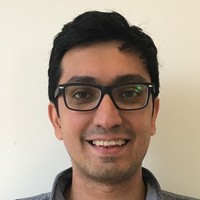Tribal Networks and Diffusion of News on Social Media
The public sphere is sick. Tribalism, polarization, echo chambers and misinformation are some of the more unpleasant symptoms of this sickness.
Abstract: The public sphere is sick. Tribalism, polarization, echo chambers and misinformation are some of the more unpleasant symptoms of this sickness. These symptoms are nothing new, but they have never been as damaging to the public sphere and the core democratic institutions of our society as they are now. It would be dishonest to put the blame on the current state of affairs solely on internet and social media, however, it would be unwise to ignore their role in exacerbating these problems. In this talk, I show how computational and analytical methods at the intersection of data science, natural language processing and network science can be used to address some of these problems. Specifically, I describe my work on modeling the spread of misinformation, automatic verification of rumors and mapping tribal networks on social media. Finally, I describe the challenges ahead and propose a roadmap for how the burgeoning field of computational social science can address these challenges.
Bio: Soroush Vosoughi is a fellow at the Berkman Klein Center at Harvard University and a postdoctoral associate at MIT, working with Prof. Deb Roy. He received his Ph.D., M.Sc, and B.Sc. from MIT. His research focuses on mining and modeling large social and information networks and developing analytical methods in information, data, and network science. He applies these methods to address urgent societal challenges. In his current research, he is using computational methods to study the formation and propagation of information and misinformation on social networks. Previously, Dr. Vosoughi was the technical director of the Electome project (funded by the Knight Foundation) at the Laboratory for Social Machines at MIT, leading a team of graduate students working on algorithms for automatic analysis of election-related content on social media during the 2016 election. The team was selected as an official partner of the commission on presidential debates and the analytics developed were used to brief the moderators of all presidential debates. For his Ph.D, he developed algorithms for automatic detection and verification of rumors on Twitter.
